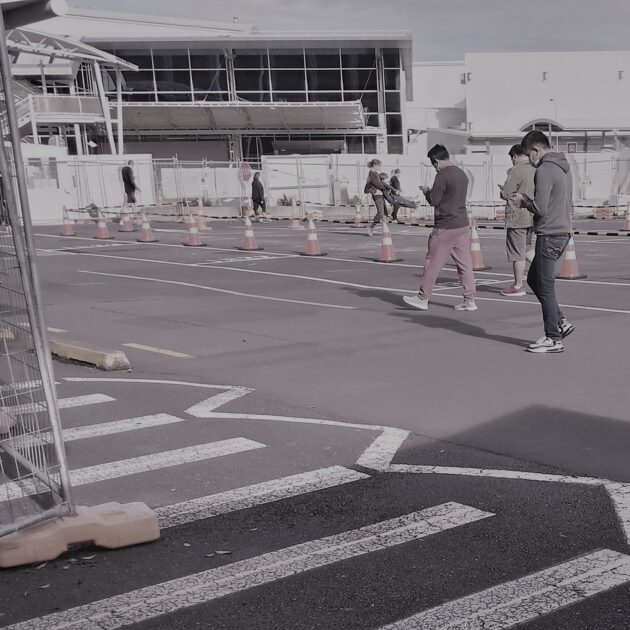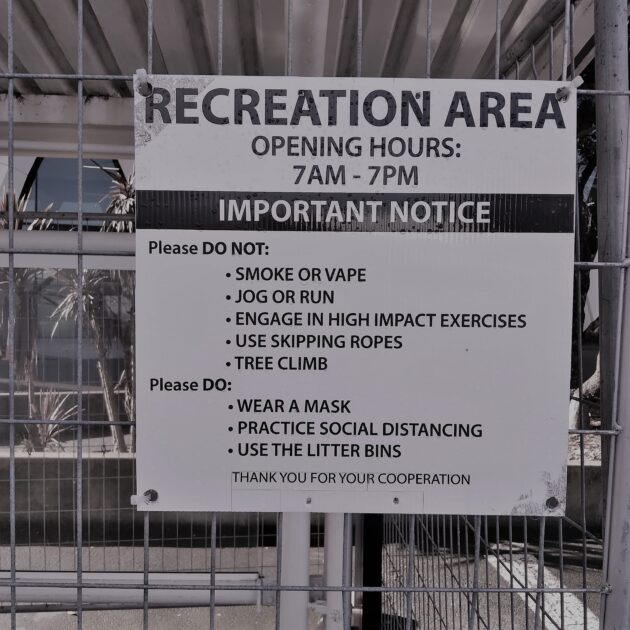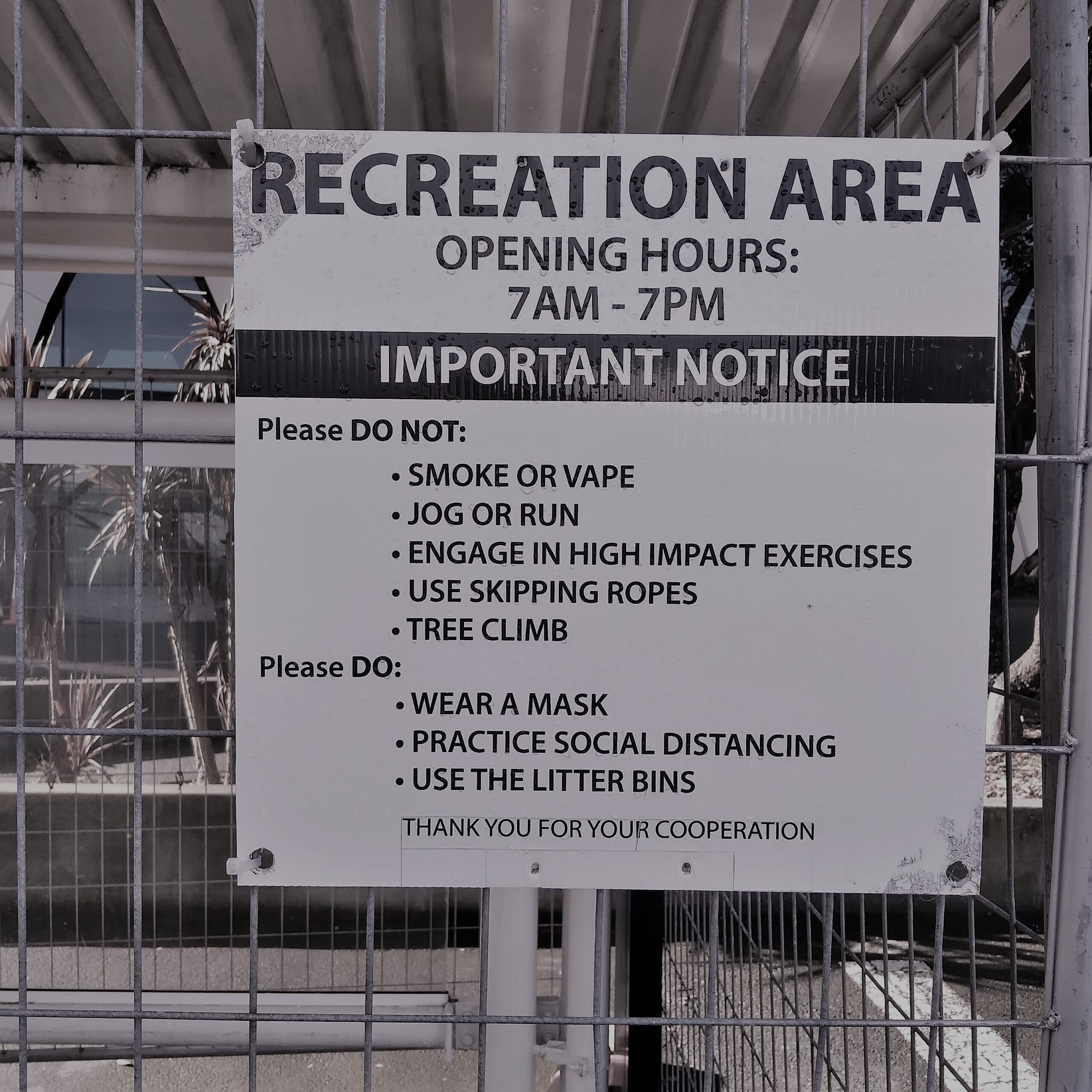Vera Stanton
Vera wrote this article after learning of the treatment of MIQ detainees and interviewing a former Paremoremo prison guard who passed through MIQ and said that max security prisoners received more outside time and less solitary confinement than MIQ detainees.
Mandatory Covid quarantines are the largest experiment of solitary confinement of the general population that has ever been conducted. Almost no one is exempt – children, pregnant women, the elderly, the grieving and even the mentally ill are all detained and isolated from society in the name of public health. Many must endure this alone, and some under the most harrowing of circumstances.
For New Zealanders lucky enough to win the MIQ (Managed Isolation and Quarantine) lottery, or have a circumstance dire enough to qualify for an emergency allocation, the first 10 days (recently reduced from 14) on New Zealand soil will be spent shut inside in one of the country’s quarantine hotels. For those who test positive in MIQ, or are considered to be a close contact of a positive case, the length of stay can be extended far beyond 14 days.
First, let us discard the idea that being confined to a hotel room for two weeks is a kind of holiday or a prize for which the detainee should be eternally grateful (despite some thinly-veiled propaganda that suggests otherwise). Arrivals into the MIQ system are temporarily imprisoned by the state and guarded by the military. They do not have any freedom to leave during the prescribed period – to do so will result in prosecution and the possibility of further imprisonment.
Those arriving into the MIQ system are often referred to as ‘travellers’ by the government and media as if people are simply off on a nice holiday. In fact, once New Zealand citizens, residents and visa holders disembark onto New Zealand soil they become detainees. As per the UN Human Rights Commission, a detained person is defined as ‘…any person deprived of personal liberty except as a result of conviction for an offence’.
Despite committing no crime other than travelling outside of New Zealand’s borders, MIQ detainees are held inside hotel rooms for 23 hours per day (and in some cases 24 hours).
Solitary confinement inside penal systems as defined under the UN Nelson Mandela Rule 44 is defined as 22 hours or more a day without meaningful human contact.
Solitary confinement is considered to be the harshest form of punishment in penal systems, to the extent that the Department of Corrections does not (formally) use solitary confinement as a disciplinary method for prison inmates.
This is not to compare the conditions of a prison with that of an MIQ hotel. Granted, in MIQ the food is likely better, the beds more comfortable and the detainee may have access to a number of luxuries that prison inmates do not, such as electronics, alcohol and treadmills. But even the gilded cage is still just that – a cage, from which one may not leave until granted release by the state.
Certainly, solitary confinement exists on a spectrum of varying degrees of isolation. Some people are detained with their family members, in which case meaningful human contact during detention is still possible. However, many people are detained entirely alone. The experience of the loss of freedom, autonomy, outside stimulation and – most significantly – meaningful human contact, is felt as keenly by MIQ detainees as it is by prisoners.
MIQ detainees must wear either a blue band (tested negative) or a red band (tested positive or close contact of a positive case). The blue band indicates the detainee is deemed ‘safe’ to be released outside with others in the exercise yard. It does not, however, guarantee that this will actually happen.

Those who have passed through the MIQ system have reported being allowed as little as 35 minutes outside their hotel room. During that time they must adhere to draconian and inconsistent rules such as no sitting, no leaning, no running and certainly no sweating. Detainees have been ordered to walk in circles around a fenced-in ‘exercise yard’, with any non-prescribed activity immediately halted.

Some detainees have been denied access to any outside time for days at a stretch, due to issues such as late test results, a lack of availability of timeslots and lack of suitable outside space. For example, a number of MIQ hotels have had to utilise small concrete courtyards or even enclosed car parks as exercise spaces. Additionally, some detainees who exhibited cold symptoms, even while testing negative for Covid, have reported having their ‘blue band’ privileges removed.
Rule 45 of the UN Nelson Mandela rules explicitly spells out the limitations that are to be placed on the use of solitary confinement:
“1. Solitary confinement shall be used only in exceptional cases as a last resort, for as short a time as possible and subject to independent review, and only pursuant to the authorization by a competent authority […]
2. The imposition of solitary confinement should be prohibited in the case of prisoners with mental or physical disabilities when their conditions would be exacerbated by such measures. The prohibition of the use of solitary confinement and similar measures in cases involving women and children, as referred to in other United Nations standards and norms in crime prevention and criminal justice […] continues to apply.
It is clear that, in many cases, MIQ detainees are not even enjoying prisoner rights as spelt out by international UN rules and norms. Additionally, under NZ’s MIQ system, detainees include women with babies and very young children. The stresses of being placed into confinement with the demands of infants and young children should not be overlooked. Worse, parents enduring it alone and without support could be placed under a level of stress that could put them and their children at risk of harm.
According to a study published in the Washington University Journal of Law & Policy by Dr Stuart Grassian of NYU, solitary confinement is experienced uniquely by each individual. For the mature, intelligent and psychologically resilient person, the experience is unlikely to cause lasting harm. However, for vulnerable people such as those with existing mental fragility, psychological problems or undergoing isolation in distressing circumstances, the experience can inflict long-term psychological effects.
Grassian’s research shows that for some, solitary confinement can produce or exacerbate anxiety attacks, depression, sensory sensitivities, disorientation, physical and cognitive decline, mental fog and sleep disorders. In the worst cases, it can induce psychosis, violence and self-harming behaviours.
We should not and cannot continue to abide by the widespread use of isolation and confinement, which catches even the most vulnerable in its net. The argument for the use of MIQ to serve the greater good was crushed when the Delta variant took hold in New Zealand. The country’s high vaccination rates, plus the arrival of the highly contagious but less virulent Omicron strain weakens the argument for the continuation of MIQ even further.
At this point, the MIQ system is demonstrably creating more harm than it could possibly prevent. This egregious trampling of human rights by this Labour Government is yet another example of the leadership’s highly selective definition of ‘kindness’. Their failure to uphold the fundamental rights of New Zealanders will not be easily forgotten.

